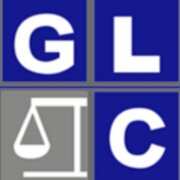Best Collaborative Law Lawyers in Qatar
Share your needs with us, get contacted by law firms.
Free. Takes 2 min.
Free Guide to Hiring a Family Lawyer
Or refine your search by selecting a city:
List of the best lawyers in Qatar
About Collaborative Law in Qatar
Collaborative Law in Qatar is a method of resolving disputes and legal matters without going to court. It involves both parties and their lawyers working together to find a mutually beneficial solution. The process is confidential and aims to maintain a respectful and cooperative environment.
Why You May Need a Lawyer
You may need a lawyer in Collaborative Law in Qatar if you are facing a family-related dispute, such as divorce, child custody, or inheritance issues. A lawyer can help you understand your rights, navigate the legal system, and advocate for your best interests during the collaborative process.
Local Laws Overview
In Qatar, Collaborative Law is governed by the Qatari Civil Code and other relevant laws. Family matters are often resolved through collaboration to ensure a fair and amicable outcome for all parties involved. It is important to consult with a lawyer who is knowledgeable about local laws and practices in Collaborative Law.
Frequently Asked Questions
1. What is Collaborative Law?
Collaborative Law is a process in which both parties and their lawyers work together to resolve legal disputes outside of court.
2. How does Collaborative Law differ from traditional litigation?
Collaborative Law focuses on cooperation and reaching a mutually beneficial agreement, while litigation is a more adversarial process that involves going to court.
3. Is Collaborative Law legally binding in Qatar?
Yes, agreements reached through Collaborative Law are legally binding in Qatar once they are approved by the court.
4. Do I need a lawyer for Collaborative Law in Qatar?
It is highly recommended to have a lawyer who is experienced in Collaborative Law to guide you through the process and protect your rights.
5. How long does the Collaborative Law process take in Qatar?
The length of the process varies depending on the complexity of the case, but it is generally quicker than traditional litigation.
6. Can Collaborative Law be used for business disputes in Qatar?
Yes, Collaborative Law can be used for a variety of legal matters, including business disputes, in Qatar.
7. Are the discussions in Collaborative Law confidential?
Yes, the discussions held during the Collaborative Law process are confidential and cannot be used against either party in court.
8. Can Collaborative Law be used for international cases in Qatar?
Yes, Collaborative Law can be used for international cases in Qatar, but it is important to consider the legal implications of cross-border disputes.
9. What happens if an agreement cannot be reached in Collaborative Law?
If an agreement cannot be reached through Collaborative Law, the parties may choose to pursue other legal avenues, such as arbitration or litigation.
10. How can I find a Collaborative Law lawyer in Qatar?
You can start by asking for recommendations from friends, family, or other legal professionals. You can also search online for lawyers who specialize in Collaborative Law in Qatar.
Additional Resources
For more information on Collaborative Law in Qatar, you can contact the Qatar International Family Institute (QIFI) or the Qatar Bar Association for guidance and resources.
Next Steps
If you are in need of legal assistance in Collaborative Law in Qatar, the first step is to schedule a consultation with a qualified lawyer who can assess your case and provide you with the best course of action. Be prepared to discuss your goals, concerns, and any relevant documents during the consultation.
Lawzana helps you find the best lawyers and law firms in Qatar through a curated and pre-screened list of qualified legal professionals. Our platform offers rankings and detailed profiles of attorneys and law firms, allowing you to compare based on practice areas, including Collaborative Law, experience, and client feedback.
Each profile includes a description of the firm's areas of practice, client reviews, team members and partners, year of establishment, spoken languages, office locations, contact information, social media presence, and any published articles or resources. Most firms on our platform speak English and are experienced in both local and international legal matters.
Get a quote from top-rated law firms in Qatar — quickly, securely, and without unnecessary hassle.
Disclaimer:
The information provided on this page is for general informational purposes only and does not constitute legal advice. While we strive to ensure the accuracy and relevance of the content, legal information may change over time, and interpretations of the law can vary. You should always consult with a qualified legal professional for advice specific to your situation.
We disclaim all liability for actions taken or not taken based on the content of this page. If you believe any information is incorrect or outdated, please contact us, and we will review and update it where appropriate.
Browse collaborative law law firms by city in Qatar
Refine your search by selecting a city.













